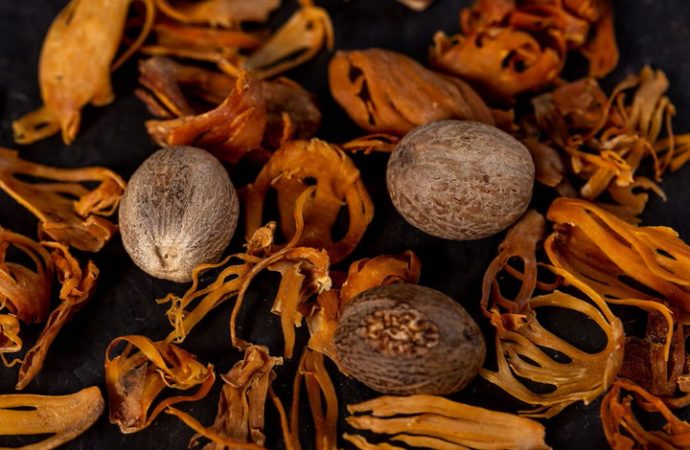Understanding Skin Sensitivity Skin sensitivity, a prevalent concern affecting a significant portion of the population, can be a challenging condition to manage. It refers to skin that reacts more than usual to various factors such as weather changes, skincare products, or certain ingredients. Individuals with sensitive skin may experience redness, dryness, itching, or a burning
Understanding Skin Sensitivity
Skin sensitivity, a prevalent concern affecting a significant portion of the population, can be a challenging condition to manage. It refers to skin that reacts more than usual to various factors such as weather changes, skincare products, or certain ingredients. Individuals with sensitive skin may experience redness, dryness, itching, or a burning sensation, even with mild exposure to these triggers.
The causes of skin sensitivity can vary from person to person. Genetics play a significant role, where some individuals are inherently predisposed to sensitive skin. Environmental factors like harsh weather, pollution, or excessive sun exposure can exacerbate skin sensitivity. Additionally, allergies to specific substances, underlying skin conditions like eczema or rosacea, or the use of abrasive skincare products can all contribute to heightened skin sensitivity.
Managing sensitive skin involves identifying and minimizing exposure to potential irritants. Choosing products specifically formulated for sensitive skin, patch testing new products, adopting a gentle skincare routine, and protecting the skin from harsh environmental elements are crucial steps in managing and alleviating skin sensitivity.

Image by: https://www.herworld.com/wellness/5-spices-incorporate-your-diet-get-your-best-skin-ever/
The Allure of Spice Masks
Spice masks have surged in popularity in the realm of skincare, drawing interest for their natural and often potent properties. Common spices like cinnamon, ginger, and turmeric have long been used in traditional medicine and skincare for their potential benefits. Cinnamon is recognized for its exfoliating properties and anti-inflammatory effects. Ginger is praised for stimulating circulation, giving a natural glow to the skin. Turmeric is celebrated for its anti-inflammatory properties and its ability to brighten the complexion.
However, for those with sensitive skin, incorporating spice masks into their skincare routine requires a cautious approach. The same properties that make these spices beneficial can also potentially cause irritation and discomfort for sensitive individuals. It’s important to understand these potential benefits and drawbacks before incorporating spice masks into your regimen.
Potential Irritants in Spice Masks
While spices offer numerous benefits, they can also be potential irritants for sensitive skin. The active compounds found in spices, such as cinnamaldehyde in cinnamon or gingerol in ginger, can be too strong for sensitive skin and may cause adverse reactions.
- Cinnamon: Cinnamon is known for its exfoliating and anti-inflammatory properties. However, it can cause redness and irritation, particularly for those with sensitive skin. The potency of cinnamon may be too much for the skin to handle, leading to discomfort and even potential allergic reactions.
- Ginger: Ginger is celebrated for its ability to stimulate circulation and rejuvenate the skin. Yet, its stimulating properties may cause a burning sensation or redness, making it less suitable for those with sensitive skin.
- Turmeric: Turmeric is renowned for its anti-inflammatory properties and its ability to brighten the skin. However, it may stain the skin and, in some cases, cause allergic reactions, especially if the concentration is too high for sensitive skin.
Tips for Sensitive Skin: Spice Mask Edition
For individuals with sensitive skin eager to explore spice masks, there are smart strategies to minimize potential irritation and discomfort while still enjoying the benefits of these spices.
- Patch Testing: Before applying a spice mask to your entire face, conduct a patch test. Apply a small amount of the mask to a discreet area of your skin, like behind your ear or on your wrist. Wait 24-48 hours to observe any adverse reactions before using it on your face.
- Dilution: If you’re keen on using spices in your skincare routine, consider diluting them to reduce their potency. Mix them with a gentle base, such as yogurt or honey, to lessen the risk of irritation while retaining the benefits.
- Frequency: Limit the frequency of using spice masks, especially if you’re just starting to incorporate them into your routine. Begin with once a week and observe how your skin reacts before considering more frequent use.
- Moisturize: Ensure your skin is adequately moisturized before applying any spice mask. A well-moisturized skin barrier is better equipped to handle potentially irritating substances.
- Choose Gentle Formulations: Opt for skincare products that are specifically designed for sensitive skin. Look for labels indicating hypoallergenic, non-comedogenic, and fragrance-free options.
Alternative Ingredients for Spice Mask Enthusiasts
If spice masks prove to be too harsh for your sensitive skin, fear not! There are plenty of gentle alternatives available that offer similar benefits without causing irritation.
- Oatmeal: Oatmeal has soothing properties that can calm sensitive skin. It can reduce redness and irritation while providing gentle exfoliation.
- Aloe Vera: Aloe vera is known for its healing and hydrating properties. It can soothe irritated skin and promote a healthy complexion.
- Chamomile: Chamomile has anti-inflammatory properties, making it ideal for sensitive skin. It can help reduce redness and irritation.
- Green Tea: Green tea is rich in antioxidants and has anti-inflammatory properties. It can soothe the skin and help with any redness or irritation.
Conclusion:
Dr. Mark Hyman’s valuable insights have shed light on the delicate balance between spice masks and sensitive skin. Understanding the intricacies of skincare for sensitive skin empowers us to make informed choices, ensuring a glowing and healthy complexion. As we venture forward in our skincare journeys, let us embrace the wisdom shared here, advocating for a vibrant and irritation-free skin.
In the realm of skincare, knowledge is indeed power. Armed with the right information, you can tailor your skincare routine to meet the unique needs of your skin, ensuring a healthy and radiant complexion. Here’s to a future of well-informed skincare decisions and a glowing, happy skin!

















Leave a Comment
Your email address will not be published. Required fields are marked with *